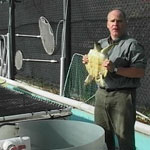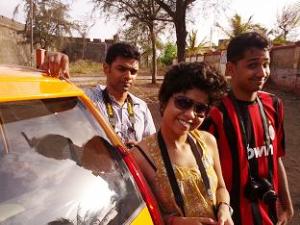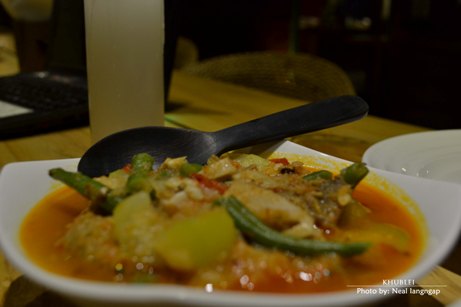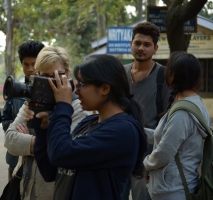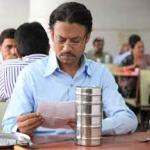[ Dr Sonora Jha is a Seattle-based author and academic. She has worked as a journalist in Mumbai and Bangalore before moving to the United States to earn a doctorate in Political Communication. She is now a professor of journalism and the Chair of the Department of Communication at Seattle University. Dr Jha has written social scientific research publications on the intersections of press, politics, and the Internet. Her novel Foreign has emerged from her academic work and investigative research. ]
Foreign will soon be launched in India and you will be asked the oft-asked question: Why did you feel like writing on farmers' suicides in Maharashtra? Why a novel? Why not non-fiction that goes close to your work as a journalism professor at Seattle University?
As a media researcher, I went to Vidarbha to probe into issues of the farmers. I felt they were not being reported adequately in the national and international media. I had done rural reporting before, and my heart had stayed in that world of journalism. The way in which the farmers' families were telling me their stories made me feel that I wanted a much wider audience for this work. And for that, I would have to tell the story in a more compelling way. I wanted readers to connect with one farmer and one family and then realize that hundreds of thousands of farmers were going through the same crisis.
On the lighter side, you know that you will be asked this question (why you, why this subject of farmers) again and again in every Indiawide launch, Mumbai, Bangalore, Amritsar? Some good one-liners for each of these critiques?
To the question "why you?" I would say, with all love and respect, "Why not YOU?"I feel that why isn't the general public spreading the word on social media? Why isn't every single journalist writing this story, which is the biggest, most frightening story of our times?
To the question "Why this subject?" I would say, "Because it haunts me."
Was I a tragedy vampire? Was I there to feed on the sorrows of my country or assuage my own guilt for leaving? Was this my equivalent to sending money home as many expat Indians do, to causes in the motherland? This is how your blog reasons out your own factors, or the lack of them, for choosing your subject? Since you have named some greats like P Sainath (as key influencers), scribes who do great people-centric journalism here, how have they received the book?
Yes I went through my own soul-searching. The bog entries show that phase. People have appreciated my reasoning. Activist Kishore Tiwari and food policy analyst Devinder Sharma have loved the book and promoted it on their social media networks. Journalists Jaideep Hardikar and Dionne Bunsha, who reported for years on the farmers suicides, read my book before I sent it for publication, and hugely supported it. I haven't heard from P Sainath yet. He is one of my earliest mentors as a student journalist.
Do you agree that the book will be scrutinized more closely in India than in the U.S., on several counts, like the representation of the local ethos, the genesis of your feelings for farmers, the plausibility of the plot, the solutions that some characters offer? In India, there are multiple views on the issue of farmers movements, protest platforms, drought management, women’s involvement in rural politics? Do you agree that different people from different sides of the political spectrum in India will perceive your fiction distinctly? And it is a pretty divided spectrum, right?
Yes, absolutely. I was somewhat intimidated when I started writing the book, because I knew there were so many complex issues and ideologies involved. As an academic with years of statistical studies, I am accustomed to high levels of rigor and scrutiny. I turned that onto my own work with this book. But, a writer could get totally paralyzed if she tries to please - or fear - everybody. You have to make a leap of faith. I did not set out trying to write an easy book. If I had, I might have written a book on the coffee shops of Seattle. But I was more interested in the cotton fields of Vidarbha. I welcome critiques. If people are talking about the farmers' issues after reading my book, my work is done.
For how long did you mull over the theme? Were you satisfied with the time and resources at your disposal in India?
Was I satisfied? No. I would have liked to spend years in Vidarbha doing more extensive research, but I couldn't. I spent a few days. Before I went there in late 2008, I worked with the meticulous mind of an academic. And while I was in the villages, I listened with the keenness of a journalist. When I came back to Seattle, I plunged into teaching myself to write fiction with the passion of a storyteller. For more research, I tried to get my hands on all the journalistic work, the documentaries. It took me four years to complete the book. And since my Marathi isn't very good, I traveled to the villages with people who helped with translations. When I used to report on rural India years ago, I never let language be a handicap. I empowered myself, to the extent possible.
You arrived at some names (Dhanpur) and retained some real ones? Was it difficult to accommodate the real-life demographics, geography, gender equations, sociology of caste into the fictional world? For instance, did you reason out the sociology behind surnames like Patekar, Andhale, Deshmukh before bringing them on to your pages?
I read of a village named 'Dhanpur' later, and thought the irony of that name worked well for the story. I went to Pandharkawda, so I kept that real name. Yes, I had to research names and caste, gender equations, food and festivals, and more. I tried my hardest to avoid factual errors. I hope I have succeeded.
Maharashtra remains alive in your mental space all the while. Some of your blog entries refer to political controversies involving Maharashtra ministers like Ajit Pawar? In this context, where lies your comfort zone? What is foreign and what is familiar for you? In today’s times of world citizenship, do these terms lose their significance? Did you ever encounter any fear of being labelled as a diaspora/NRI writer who has a distant view of reality?
I was labelled a 'langdee' (cripple) when I was a child, because I had polio. Now in my forties, I have learned to get over the fear of labels. But, 'foreign' is a label I love and embrace. I tell my students to be `foreign everywhere, even in their homeland. Only when you stay foreign, will you question everything around you. Even after years of living in the U.S., I find myself thinking of farmers' suicides. I really have no idea why this happens? I do probe into American social movements and American presidential politics. But I am also intrigued by men like Ajit Pawar.
The Marathi language is central to the understanding of Vidarbha? How has this cultural-linguistic layer been appreciated by the readers so far?
I would want 'Foreign' to be translated into Marathi, so that the story can actually reach the farmers. They opened their homes and hearts to me. I think it's unfair if they don't have access to the story. They are the intended readers.
In multi-lingual India, journalists are often handicapped by their lack of local language skills. Do you think your years in the Afternoon newspaper in Mumbai helped you to build a firm language sensibility?
Yes, to some extent. I can understand a lot of Marathi, but I can't speak it. It's frustrating. In Bangalore, I learned a little Kannada and Tamil. But, like I said earlier, you can't learn all languages. But you can care about all people and all stories and then struggle and try and try to overcome language barriers to the best of your ability.
The protagonist Katya is perceived as a foreigner in India, who has pretty abrasive views on India. But could someone as savvy as Katya (who writes books like Its racist not to laugh at Obama) be so politically incorrect, so as to spew venom so openly?
I had two purposes in the making of Katyayini. One - I know men and women like her, who have felt hurt by their country. They develop a disdain for it. They are quite vocal about it. I wanted the reader to dislike her. Towards the end of the story, she is a bit reformed, but she cannot "rescue" the farmers. She is already too foreign. Someone like her son Kabir, who has no baggage, can offer his solidarity, his apprenticeship. My second reason for making her what she is: I think the world of fiction doesn't have enough 'negative' female characters. I am tired of reading about good, strong and self-aware women. I want to create problematic and unsympathetic characters like Katya.
How is it being a journalism professor in Seattle? How different is it from addressing Indian journalists in Indian settings?
Things are changing here quite rapidly. The print media outlets are dying but also morphing in some ways. I teach my students to think innovatively. I tell them that the medium of storytelling may change, but human beings will always be curious about other human beings. They will always want news and stories. Innovation is therefore the word.
You have said that you are already thinking about the second assignment? As an Indian-American mother/academic/journalist/author living in the U.S., your America story will also be interesting?
Yes, I am writing now about my unusual route of arrival in America and how I rebuilt a life and a profession in this huge multicultural world.
Do you see a sequel simmering somewhere?
I will write a sequel if the story is about prosperity returning to Vidarbha. Trust me, I will then write an out-and-out book of celebration!
As a journalist-turned writer, what is your reading of the situation in Maharashtra? Do you see any hope in the current mess? And how do you place/locate this book in the larger context of finding solutions?
I see hope. I see greater hope after people marched on the streets after the rape of a young woman in New Delhi. I want people to bring the same fervour to the cause of the farmers. I was inspired by journalists who wrote fiction to bring about change. Upton Sinclair wrote 'The Jungle,' which dealt with inhuman conditions in meat packing plants in the U.S. His writing changed government policy for the better. I want my book to make that kind of dent. I have made a tiny contribution. I want others to use the book for their own contributions to the farmers' cause.
Find us on facebook: facebook.com/TheThumbPrintMag









